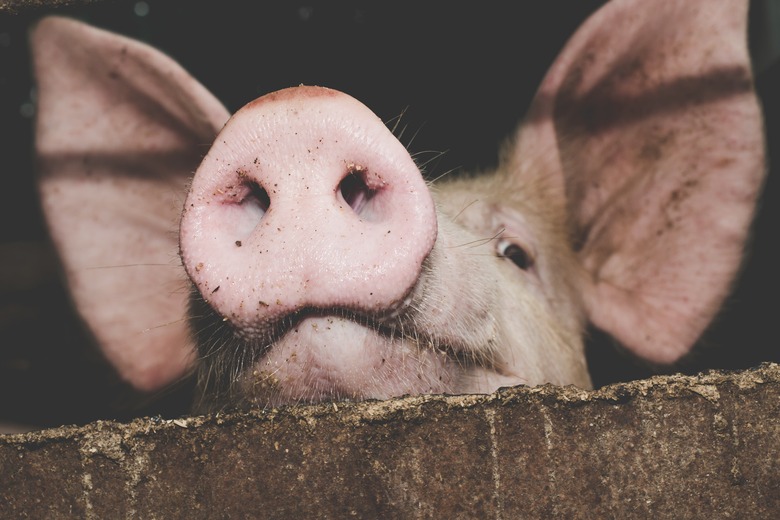The FDA Is Poised To Ban Cancer-Causing Antibiotic Used In Pork
After warnings from scientists and vows from fast food joints, the FDA is finally on the precipice of slowing antibiotic usage in raising livestock.
In a recent statement, the FDA has affirmed its concerns for the usage of carbadox particularly in pigs raised for pork, and is set to ban the substance as a cancer-causing risk for bacon-eaters. Several studies have already demonstrated the substance's carcinogenic properties in lab rats, according to NBC News.
"Continued approval of carbadox could expose consumers to substances of carcinogenic concern," the FDA said in a statement. "The potential cancer risks are based on an assumed lifetime of consuming pork containing carbadox residues, and short-term changes in diet are unlikely to affect anyone's lifetime risk."
Pork producers are not required to report antibiotics usage to the FDA, so the government agency is not aware of which brands and pork producers are considered safe.
Unlike the gripes of many antibiotics naysayers, carbadox is not actually used for human medicinal purposes, and therefore banning it will not actually reduce the negative effects of antibiotic resistance or the acceleration of superbugs.
